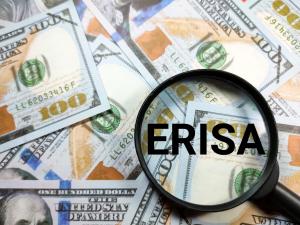ERISA or Non-ERISA Plans
Most employer-sponsored retirement plans are subject to the Employee Retirement Income Security Act (ERISA), but some plans are exempt.
LONG BEACH, CALIFORNIA, UNITED STATES, June 5, 2023/EINPresswire.com/ -- Most employer-sponsored retirement plans are subject to the Employee Retirement Income Security Act (ERISA). ERISA is a federal law that sets standards intended to provide protection for the participants of private retirement plans. ERISA defines several federal requirements regarding funding, vesting, participation, the accrual of benefits, reporting and disclosures, and accountability of plan fiduciaries.Which plans can be exempt - Do you have an ERISA or NON-ERISA Plan?
- Governmental plans (e.g., plans sponsored by a state, county, or municipality or one of their agencies, schools, or instrumentalities).
- Church plans unless the plan sponsor has voluntarily elected to have the plan covered by ERISA.
- Private sector (non-governmental) 403(b) plans established by 501(c)(3) tax-exempt organizations that meet the following requirements may be exempt from ERISA:
1. Plan participation must be completely voluntary.
2. The only form of plan contributions allowed is employee elective deferrals (pre-tax or Roth).
3. Participants are offered a reasonable choice of investment options (the Department of Labor (DOL) has informally indicated that there should be at least two different vendors’ products available).
4. Employees are provided with information on plan investment options.
5. Employer involvement in plan administration is limited to optional activities related to administering elective deferral agreement and does not involve discretionary determination. Plan sponsors who wish to maintain non-ERISA plans may not process distributions, approve hardship distributions or loan requests, review qualified domestic relations order (QDRO) requests received by the plan, authorize plan-to-plan transfers, or make any discretionary determinations regarding plan administration. The DOL has determined that handling these functions internally will make the plan subject to ERISA.
6. The employer must receive no direct or indirect compensation for maintaining the plan other than a reasonable reimbursement of expenses incurred to operate the plan.
Advantages of a Non-ERISA Plan
There are several key factors to consider in deciding whether to subject a 403(b) plan, which contains only employee salary-deferral contributions, to ERISA. There are advantages to being a non-ERISA 403(b) plan. Some of the advantages are:
- A non-ERISA plan does not need to comply with the plan document requirements, including providing a Summary Plan Description (SPD) to participants and quarterly and annual investment and financial information.
- Form 5500 and related schedules do not need to be filed.
- An annual audit for plans that cover more than 100 participants is not required.
- A non-ERISA plan is not subject to the strict ERISA fiduciary standards regarding exclusive benefits, prudent care, and diversification, but it is subject to state law and other standards.
Plan sponsors must carefully review the plan design and operation when deciding to be a non-ERISA plan because if facts and circumstances determine that the plan truly is an ERISA 403(b) plan, and Form 5500 filings and other disclosure and reporting requirement are missed, the corrections could be costly.
If a plan sponsor has questions about a 403(b) plan, they should use an experienced Employee Benefit Plan Auditor to ensure compliance.
Connect With Windes
Windes
+1 844-494-6337
info@windes.com
Visit us on social media:
Facebook
Twitter
LinkedIn
Legal Disclaimer:
EIN Presswire provides this news content "as is" without warranty of any kind. We do not accept any responsibility or liability for the accuracy, content, images, videos, licenses, completeness, legality, or reliability of the information contained in this article. If you have any complaints or copyright issues related to this article, kindly contact the author above.

